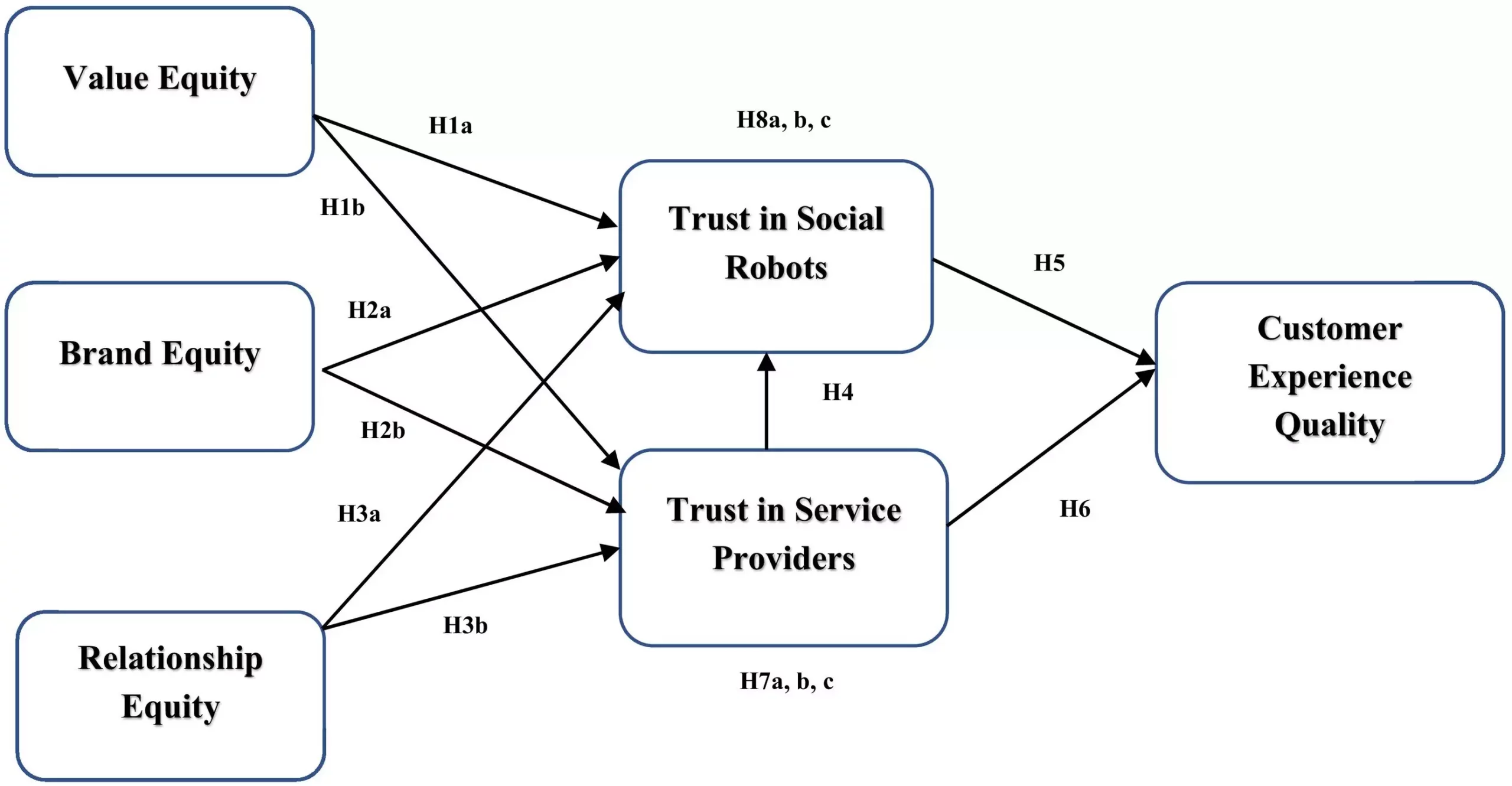

As artificial intelligence continues to advance, the integration of social robots into commercial settings has become a topic of interest. Research conducted by Professor Sanjit Roy from Edith Cowan University explores the relationship between customer equity drivers, trust in social robots, and trust in service providers. The study suggests that the use of social robots in retail can enhance customer experiences by acting as entertainers, social enablers, friends, and mentors. These robots have the potential to transform customer interactions through various functions such as handling repetitive tasks, assisting in professional domains, and even aiding in surgical procedures. By augmenting human capabilities with technology, businesses can improve efficiency, productivity, and overall service quality, thus creating value equity for the company.
One of the key findings of the research is that the presence of social robots in service delivery can enhance customers’ perceived value equity by improving the efficiency and effectiveness of services. The value provided by these robots fosters trust between customers and the technology, leading to a shift in customer dispositions towards service providers. Successful interactions between humans and robots lay the foundation for building long-term relationships, where each positive experience contributes to greater trust. This highlights the importance of investing in relationship equity to cultivate trust in social robots and service providers. However, the study recognizes that the authenticity and friendliness of human employees may be compromised when replaced by robots, raising concerns about the relational benefits of customer interactions.
Trust plays a critical role in shaping perceptions of social robots, especially for customers with limited prior interaction with technology. In the absence of direct experience, customers rely on cues from service providers to form assumptions about the trustworthiness of social robots. This indicates that trust in service providers serves as a bridge to establishing trust in technology. As such, businesses should focus on enhancing brand equity and relationship equity to optimize customer experiences with social robots. By prioritizing trust-building initiatives, retailers can strengthen their brand identity, nurture long-term relationships, and positively influence customer perceptions of technology. Transparent and reliable services, consistent communication, and delivering on promises are essential for reinforcing trust and improving customer experiences with social robots.
Overall, the research conducted by Professor Roy sheds light on the potential benefits and challenges of integrating social robots into commercial settings. While these robots have the capacity to enhance customer interactions and service delivery, businesses must be mindful of the impact on relationship dynamics and customer trust. By striking a balance between human and technological elements, companies can leverage the transformative power of social robots to create value, build trust, and improve overall customer experiences. In an increasingly digitized world, the successful integration of social robots may prove to be a strategic advantage for service providers looking to differentiate themselves and meet the evolving needs of customers.
In the realm of software development, the ability to swiftly and accurately address bugs is…
The realm of quantum computing and communication is not just an abstract dream anymore; it…
In a remarkable leap for the field of material science, a collaborative research initiative has…
Throughout Earth's vast history, our planet has endured five major mass extinction events that reshaped…
Rainfall is a vital element of our planet’s hydrological cycle, yet many aspects of its…
On a night when the universe aligns, a mesmerizing phenomenon awaits: the appearance of the…
This website uses cookies.